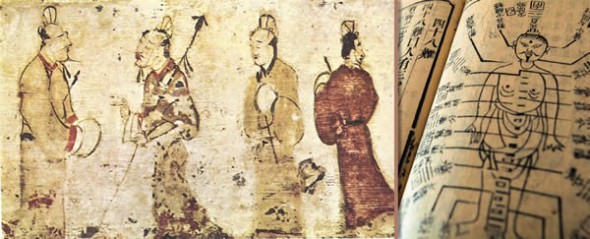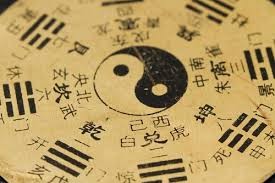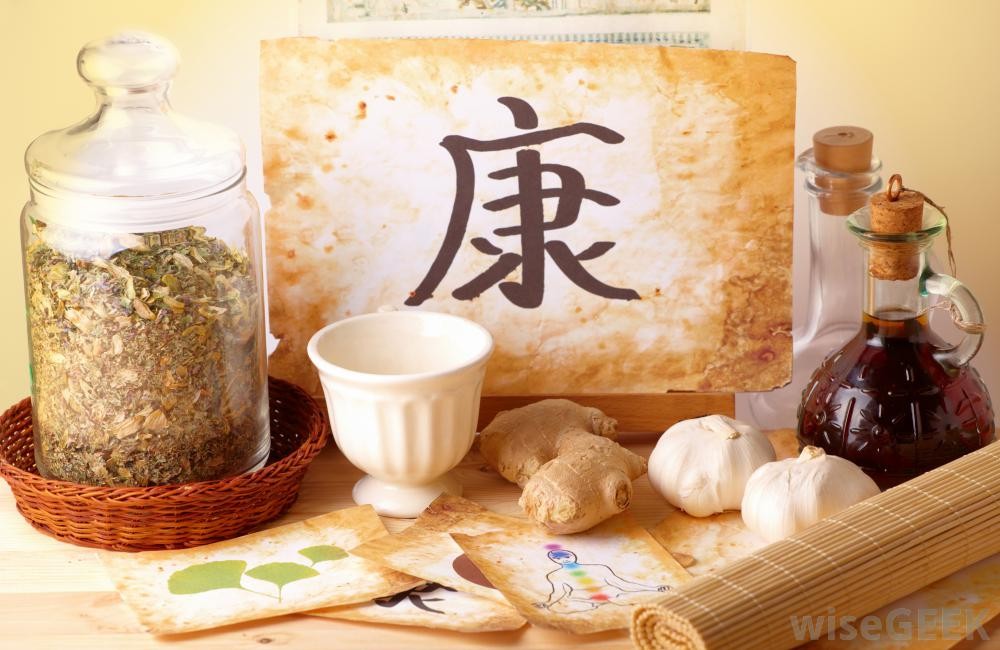



Chinese Natural Healing
Stephen Lau
Stephen Lau
Chinese Natural Healing
Stephen Lau
Stephen Lau






CHINESE WISDOM
Chinese wisdom is based on the ancient wisdom of Lao Tzu. His profound wisdom is applicable in everyday life, even living in this contemporary world.
My Way! No Way! TAO Is the Way
TAO wisdom shows you how to go through your depression, instead of avoiding it or suppressing it with medications. His wisdom reveals the secrets of dealing with human relationships, careers, health issues, life change and challenges, which are the basic causes of depression, and the origin of human unhappiness. Lao Tzu shows you how to accept and embrace everything experienced in depression, thereby instrumental in freeing yourself from depression.
Click here for more information. Also, visit my website: Wisdom in Living.
TAO: The Way to Biblical Wisdom
The interpretations of Tao Te Ching are as many as its translations. Each author is looking at Lao Tzu's immortal classic from his or her own perspective, and this is also one of the many reasons why Tao Te Ching is intriguing and controversial.
The Bible and Tao Te Ching are among the most translated and extensively read books of all time, and for a good reason: one is about God's wisdom, and the other is about human wisdom.
The author's own translation of Tao Te Ching is based on his belief that Lao Tzu's masterpiece is all about the Creator of the universe, and that only with true human wisdom man sees not only the manifestations but also the mysteries of His creation.
This book is about true human wisdom without the “conditioned” thinking of contemporary wisdom. The Way -- the essentials of the "reverse" mindset of Lao Tzu -- is the way to Biblical wisdom.
Click here to get this book on the profound human wisdom of Lao Tzu, as well as the wisdom of God..
Reflections on Zen Wisdom
"After the long slumber of ignorance, a single word can change a man forever."
Enlightenment, if it ever comes, comes unexpectedly. In Zen or TAO, everything -- including enlightenment -- is spontaneous. If you seek Buddha, you will not find him. But if you don't seek, you may find him. In Zen wisdom, if the pupil is ready, the teacher will turn up.
"There are three truths: my truth, your truth, and the truth."
In this world, most of us are too opinionated and self-centered. Our culture has instilled in us a mine-is-better attitude. We were brought up with the notion that "I am special." There is overemphasis on differences, rather than on similarities. For these reasons, even when we show open-mindedness, tolerance, and diversity, we are in fact trying to reassert ourselves that "mine-is-better." If everyone focuses too much on the self, then there would be "my truth","your truth" and the truth.
"When the heart is at ease, the body is healthy."
More than 60 million Americans suffer from some form of insomnia. Lack of sleep depresses the immune system and increases everyday stress. Insomnia, according to Chinese medicine, is due to a restless heart caused by perturbed thoughts. A holistic approach to promoting proper sleep is to establish a regular bedtime each night to retune yourself to nature's circadian rhythms. Go to bed no later than 10 P.M. and get up around 6 to 7 A.M.
Benjamin Franklin also had to say: "Early to bed and early to rise makes a man healthy."
You can further enhance your deep sleep with daily meditation.
"Meditation remedies ignorance and fosters wisdom."
Buddha said: “Meditation brings wisdom; lack of mediation leaves ignorance. Know well what leads you forward and what hold you back, and choose the path that leads to wisdom.”
According to Buddha, we are often deluded by our consciousness, which is attached to the senses, causing us to take the world of appearances for the world of reality. In other words, it is ignorance that begets delusion, which is belief in something that contradicts reality. In Buddhism, delusion is a lack of awareness of the true nature of things, or of the true meaning of existence. Accordingly, our perceptions are often only limited and fleeting aspects of reality. However, through meditation, we may achieve the wisdom that separates delusion from reality. Meditation overcomes ignorance: it is the path to wisdom.
Delai Lama, the Tibetan spiritual leader, concurs: “Where ignorance is our master, there is no possibility of real peace.” There is no real peace when one continues to crave something illusory and self-delusory.
"People differ in life, but not in death."
Death is an equalizer of man: one of the reasons why people are so afraid of death. We simply do not want to be "equal" to others. Human pride singles us from the rest of the crowd; even early in childhood, each of us acquires a "mine-is-better" attitude. As a result, in the deep recesses of our minds, we still think we are "different" because we possess certain unique qualities that others don't seem to have -- such as social status, intellectual abilities, and religious beliefs, among others. No matter how hard we strive for equality, diversity, or integration, we accept only those who share our convictions or fit into our profiles. Even so, they often seem to be inferior to us, due to the preoccupation with self.
Only when we truly see the similarities, not the differences in human beings, do we really appreciate and understand the meaning of human compassion and loving kindness: a fellow human being is just like any other human being with the same desire to be happy and to avoid suffering. Essentially, it is the wisdom of focusing on others rather than self.
Reflections on TAO Wisdom
TAO wisdom is based on the wisdom of the ancient Chinese sage Lao Tzu, who was the author of the ancient immortal classic "Tao Te Cing."
Tao (or the Way) is the pathway to wisdom, which is self-intuition through self-awakening. Once it is expressed in words, it is no longer the pathway. Anything with a name immediately assumes an identity and thus becomes pre-conditioning and self-limiting-obstacles to freedom in thinking, which is the source of human wisdom.
Be A Better And Happier You With TAO Wisdom
This 132-page book is based on the profound human wisdom expressed in “Tao Te Ching.” The book contains the translation in simple English of the complete text of “Tao Te Ching.” To illustrate, the language is simple and easy to understand, but the wisdom expressed may be difficult:
“Like water, soft and yielding,
Yet it overcomes the hard and the rigid
Stiffness and stubbornness cause much suffering.
We all intuitively know
that flexibility and tenderness
are the way to go.
Yet our conditioned minds
tell us to go the other way.”
(Chapter 78, Tao Te Ching)
This book shows you how to attain true human wisdom through asking self-intuitive questions, creating an empty mindset with reverse thinking to let go of the ego-self to become a better and happier you.
The wisdom of TAO begins with the power of intent in the mind to know and to learn more about the true “self”-after all, wisdom is about self, and about how it reacts with everyone and everything around. In the quest of wisdom, the revelation of having no ego-self is the turning point, where you may begin to embark on a different life journey with a different mission. Your “conditioned” mind thus begins the journey of “reverse thinking” which will ultimately change your life, making you a better and happier you.
TAO wisdom enables you to see the wisdom in the oneness of all life-that everything exists because of its “opposite” and that everything will ultimately become its opposite, just as youth becoming old age, and life becoming death. Spontaneity, which is following the natural laws of nature, holds the key to attaining true human wisdom to live your life as if everything is a miracle.
Part One of the book explains the prerequisites of human wisdom. Without true human wisdom, it is almost impossible to perceive the innate human goodness in self, as well as in others. Human goodness leads to the attributes of genuine human happiness.
Part Two is the complete translation of the 81 short chapters of Lao Tzu's "Tao Te Ching" in simple English for readers to understand the complex and controversial wisdom of “Tao Te Ching.”
Part Three highlights the essentials of TAO wisdom, and shows how it can be applied to contemporary living so that you may live as if everything is a miracle to be a better and happier you.
To be a better and happier you is both easy and difficult: TAO wisdom is easy to understand with an empty mind, but difficult to assimilate its depth and profoundness.
Click here to get the book.
The Universal Truth
“The ancient prophets were wise.
Their wisdom was unfathomable.
It is indispensable to understanding the salvation from the Creator.
All we can do is to live by their profound prophecies:
watchful, like a man crossing a winter stream;
alert, like a man aware of danger;
courteous, like a visiting guest;
yielding, like ice about to melt;
simple, like a piece of uncarved wood;
hollow, like a cave;
opaque, like muddy water.
Living by their prophecies, we wait for our muddled thoughts to settle,
our composed minds to become clear just like muddy water, until enlightenment arises, followed by eternal salvation.”
(Lao Tzu, Tao Te Ching, chapter 15)
The Wisdom to Understand
Living in TAO is the art of living well, which requires the wisdom to understand that all things follow a natural cycle, such as what goes up must also come down, and day is followed by night, and life begets death.
Living is simple: just be a spectator, only watching the comings and goings of anything and everything.
With what you have, do what you can. With no picking and no choosing, never over-do anything. With no preference and no expectation, just accept and embrace whatever that turns out. Life always follows a natural cycle of spontaneity-everything just comes and goes, generating balance and harmony.
Stephen Lau
Copyright© by Stephen Lau
Chinese wisdom is based on the ancient wisdom of Lao Tzu. His profound wisdom is applicable in everyday life, even living in this contemporary world.
My Way! No Way! TAO Is the Way
TAO wisdom shows you how to go through your depression, instead of avoiding it or suppressing it with medications. His wisdom reveals the secrets of dealing with human relationships, careers, health issues, life change and challenges, which are the basic causes of depression, and the origin of human unhappiness. Lao Tzu shows you how to accept and embrace everything experienced in depression, thereby instrumental in freeing yourself from depression.
Click here for more information. Also, visit my website: Wisdom in Living.
TAO: The Way to Biblical Wisdom
The interpretations of Tao Te Ching are as many as its translations. Each author is looking at Lao Tzu's immortal classic from his or her own perspective, and this is also one of the many reasons why Tao Te Ching is intriguing and controversial.
The Bible and Tao Te Ching are among the most translated and extensively read books of all time, and for a good reason: one is about God's wisdom, and the other is about human wisdom.
The author's own translation of Tao Te Ching is based on his belief that Lao Tzu's masterpiece is all about the Creator of the universe, and that only with true human wisdom man sees not only the manifestations but also the mysteries of His creation.
This book is about true human wisdom without the “conditioned” thinking of contemporary wisdom. The Way -- the essentials of the "reverse" mindset of Lao Tzu -- is the way to Biblical wisdom.
Click here to get this book on the profound human wisdom of Lao Tzu, as well as the wisdom of God..
Reflections on Zen Wisdom
"After the long slumber of ignorance, a single word can change a man forever."
Enlightenment, if it ever comes, comes unexpectedly. In Zen or TAO, everything -- including enlightenment -- is spontaneous. If you seek Buddha, you will not find him. But if you don't seek, you may find him. In Zen wisdom, if the pupil is ready, the teacher will turn up.
"There are three truths: my truth, your truth, and the truth."
In this world, most of us are too opinionated and self-centered. Our culture has instilled in us a mine-is-better attitude. We were brought up with the notion that "I am special." There is overemphasis on differences, rather than on similarities. For these reasons, even when we show open-mindedness, tolerance, and diversity, we are in fact trying to reassert ourselves that "mine-is-better." If everyone focuses too much on the self, then there would be "my truth","your truth" and the truth.
"When the heart is at ease, the body is healthy."
More than 60 million Americans suffer from some form of insomnia. Lack of sleep depresses the immune system and increases everyday stress. Insomnia, according to Chinese medicine, is due to a restless heart caused by perturbed thoughts. A holistic approach to promoting proper sleep is to establish a regular bedtime each night to retune yourself to nature's circadian rhythms. Go to bed no later than 10 P.M. and get up around 6 to 7 A.M.
Benjamin Franklin also had to say: "Early to bed and early to rise makes a man healthy."
You can further enhance your deep sleep with daily meditation.
"Meditation remedies ignorance and fosters wisdom."
Buddha said: “Meditation brings wisdom; lack of mediation leaves ignorance. Know well what leads you forward and what hold you back, and choose the path that leads to wisdom.”
According to Buddha, we are often deluded by our consciousness, which is attached to the senses, causing us to take the world of appearances for the world of reality. In other words, it is ignorance that begets delusion, which is belief in something that contradicts reality. In Buddhism, delusion is a lack of awareness of the true nature of things, or of the true meaning of existence. Accordingly, our perceptions are often only limited and fleeting aspects of reality. However, through meditation, we may achieve the wisdom that separates delusion from reality. Meditation overcomes ignorance: it is the path to wisdom.
Delai Lama, the Tibetan spiritual leader, concurs: “Where ignorance is our master, there is no possibility of real peace.” There is no real peace when one continues to crave something illusory and self-delusory.
"People differ in life, but not in death."
Death is an equalizer of man: one of the reasons why people are so afraid of death. We simply do not want to be "equal" to others. Human pride singles us from the rest of the crowd; even early in childhood, each of us acquires a "mine-is-better" attitude. As a result, in the deep recesses of our minds, we still think we are "different" because we possess certain unique qualities that others don't seem to have -- such as social status, intellectual abilities, and religious beliefs, among others. No matter how hard we strive for equality, diversity, or integration, we accept only those who share our convictions or fit into our profiles. Even so, they often seem to be inferior to us, due to the preoccupation with self.
Only when we truly see the similarities, not the differences in human beings, do we really appreciate and understand the meaning of human compassion and loving kindness: a fellow human being is just like any other human being with the same desire to be happy and to avoid suffering. Essentially, it is the wisdom of focusing on others rather than self.
Reflections on TAO Wisdom
TAO wisdom is based on the wisdom of the ancient Chinese sage Lao Tzu, who was the author of the ancient immortal classic "Tao Te Cing."
Tao (or the Way) is the pathway to wisdom, which is self-intuition through self-awakening. Once it is expressed in words, it is no longer the pathway. Anything with a name immediately assumes an identity and thus becomes pre-conditioning and self-limiting-obstacles to freedom in thinking, which is the source of human wisdom.
Be A Better And Happier You With TAO Wisdom
This 132-page book is based on the profound human wisdom expressed in “Tao Te Ching.” The book contains the translation in simple English of the complete text of “Tao Te Ching.” To illustrate, the language is simple and easy to understand, but the wisdom expressed may be difficult:
“Like water, soft and yielding,
Yet it overcomes the hard and the rigid
Stiffness and stubbornness cause much suffering.
We all intuitively know
that flexibility and tenderness
are the way to go.
Yet our conditioned minds
tell us to go the other way.”
(Chapter 78, Tao Te Ching)
This book shows you how to attain true human wisdom through asking self-intuitive questions, creating an empty mindset with reverse thinking to let go of the ego-self to become a better and happier you.
The wisdom of TAO begins with the power of intent in the mind to know and to learn more about the true “self”-after all, wisdom is about self, and about how it reacts with everyone and everything around. In the quest of wisdom, the revelation of having no ego-self is the turning point, where you may begin to embark on a different life journey with a different mission. Your “conditioned” mind thus begins the journey of “reverse thinking” which will ultimately change your life, making you a better and happier you.
TAO wisdom enables you to see the wisdom in the oneness of all life-that everything exists because of its “opposite” and that everything will ultimately become its opposite, just as youth becoming old age, and life becoming death. Spontaneity, which is following the natural laws of nature, holds the key to attaining true human wisdom to live your life as if everything is a miracle.
Part One of the book explains the prerequisites of human wisdom. Without true human wisdom, it is almost impossible to perceive the innate human goodness in self, as well as in others. Human goodness leads to the attributes of genuine human happiness.
Part Two is the complete translation of the 81 short chapters of Lao Tzu's "Tao Te Ching" in simple English for readers to understand the complex and controversial wisdom of “Tao Te Ching.”
Part Three highlights the essentials of TAO wisdom, and shows how it can be applied to contemporary living so that you may live as if everything is a miracle to be a better and happier you.
To be a better and happier you is both easy and difficult: TAO wisdom is easy to understand with an empty mind, but difficult to assimilate its depth and profoundness.
Click here to get the book.
The Universal Truth
“The ancient prophets were wise.
Their wisdom was unfathomable.
It is indispensable to understanding the salvation from the Creator.
All we can do is to live by their profound prophecies:
watchful, like a man crossing a winter stream;
alert, like a man aware of danger;
courteous, like a visiting guest;
yielding, like ice about to melt;
simple, like a piece of uncarved wood;
hollow, like a cave;
opaque, like muddy water.
Living by their prophecies, we wait for our muddled thoughts to settle,
our composed minds to become clear just like muddy water, until enlightenment arises, followed by eternal salvation.”
(Lao Tzu, Tao Te Ching, chapter 15)
The Wisdom to Understand
Living in TAO is the art of living well, which requires the wisdom to understand that all things follow a natural cycle, such as what goes up must also come down, and day is followed by night, and life begets death.
Living is simple: just be a spectator, only watching the comings and goings of anything and everything.
With what you have, do what you can. With no picking and no choosing, never over-do anything. With no preference and no expectation, just accept and embrace whatever that turns out. Life always follows a natural cycle of spontaneity-everything just comes and goes, generating balance and harmony.
Stephen Lau
Copyright© by Stephen Lau